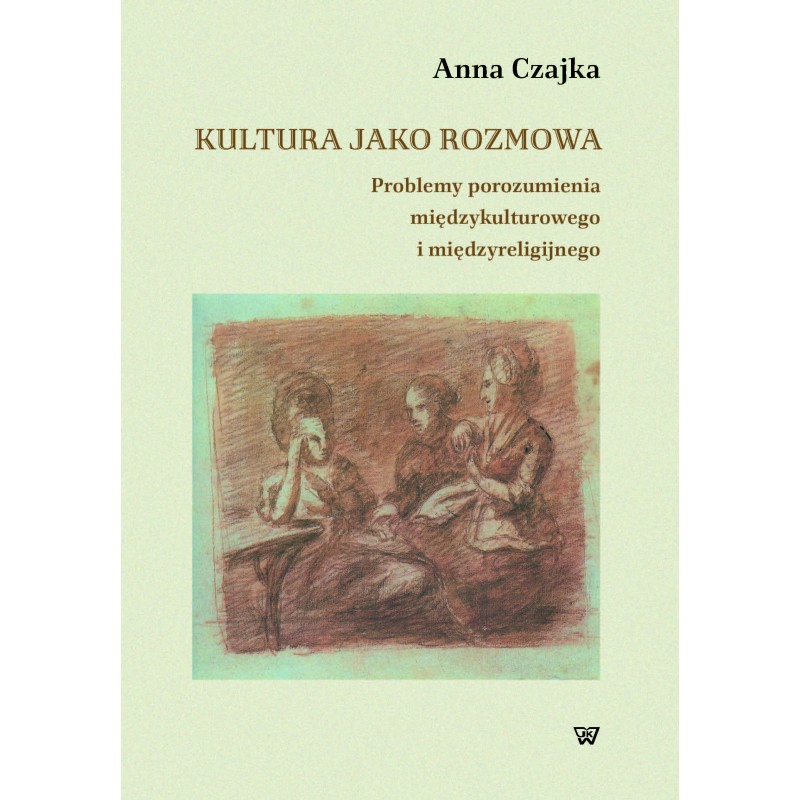




szyfrowane poÅÄ czenie SSL

tania wysyÅka

moÅžliwoÅÄ zwrotu
Abstrakt
Â
W ksiÄ Åžce poszukuje siÄ odpowiedzi na pytanie o miejsce humanistyki we wspÃģÅczesnym Åwiecie i zadania, ktÃģrym przychodzi jej sprostaÄ. WynikajÄ one z jej nierozerwalnego zwiÄ zku z rdzennym okreÅleniem kultury jako zwrÃģconej ku Dobru trosce o czÅowieczeÅstwo uprawianej w rozmowie czy dialogu z innymi i Innym. W czÄÅci I pokazane sÄ rÃģÅžne sytuacje rozmowy w rÃģÅžnorodnoÅci ich ujÄÄ i rozwiÄ zaÅ, poczÄ wszy od przesÅania biblijnego przez rozmowy miÄdzyreligijne, sytuacje dialogiczne w przekÅadach Wielkich KsiÄ g (Biblia i Koran), osobowe i literackie wzory dialogicznoÅci (Natan MÄdrzec), potencjaÅ dialogicznoÅci poezji i obrazu oraz ich umieszczenie na tle problematyki granic i ich przekraczania jako wÅaÅciwego kondycji ludzkiej. Rozpoznania tych sytuacji dopeÅnione sÄ w czÄÅci II o prezentacje prÃģb ich przekÅadania na projekty ksztaÅcenia i badawcze (studia miÄdzykulturowe, studia wÅoskie, badania miÄdzykulturowe europejskie i Åwiatowe, relacje z Chinami, projekty przekÅadÃģw miÄdzykulturowych), ktÃģre wszystkie stanowiÄ interdyscyplinarnÄ humanistycznÄ , przenikajÄ cÄ siÄ z innymi obszarami badaÅ, propozycjÄ wspÃģlnych dziaÅaÅ ludzkich w Åwiecie i naturze jako odsÅaniajÄ cych i wzmacniajÄ cych horyzont Dobra. W ten sposÃģb humanistyka moÅže podejmowaÄ prÃģby speÅniania swego przeznaczenia dostarczania kategorii ujmowania, rozumienia i dziaÅania w Åwiecie, w ktÃģrym Åžyjemy.
Â
Zusammenfassung
Â
Im Buch wird die Antwort auf die Frage nach dem Stellenwert der Geisteswissenschaften (oder latinisiert: der Humaniora) in der gegenwÃĪrtigen Welt und der auf sie zukommenden Aufgaben gesucht.  Diese ergeben sich aus der Kernbestimmung der Kultur als der Sorge um das Menschensein, die im GesprÃĪch oder Dialog mit anderen und dem Anderen gepflegt wird. Im I. Teil werden verschiedene GesprÃĪchssituationen in der Vielfalt ihrer Modi und Ergebnisse gezeigt, anfangend mit der biblischen Botschaft Þber interreligiÃķse GesprÃĪche, dialogische Situationen in der Ãbersetzung der GroÃen Schriften (Bibel und Koran), personenhafte sowie literarische Vorbilder (Nathan der Weise), das dialogische Potential der Poesie und des Bildes und deren Verortung in der Problematik der Grenze und der GrenzenÞberschreitung als die conditio humana auszeichnend. Die ErgrÞndungsresultate von diesen Situationen werden im II. Teil des Buches durch Darstellungen der Versuche ergÃĪnzt, sie in Bildungs- und Forschungsprojekte (interkulturelle StudiengÃĪnge, Italienstudien, interkulturelle Forschungsprojekte, europÃĪische und vom Weltumfang, Beziehungen zu China, interkulturelle Ãbersetzungsprojekte) umzusetzen, die alle einen interdisziplinÃĪren humanistischen und auch andere Forschungsgebiete durchdringenden Vorschlag ausmachen, gemeinsam in der menschlichen Welt und der Natur in Richtung auf den Horizont des Guten zu wirken. Auf diese Weise kÃķnnen die Geisteswissenschaften versuchen, ihre Bestimmung zu erfÞllen, die Kategorien der Wirklichkeitsauffassung, des Verstehens und des Handelns in der gelebten Welt freizulegen.
Â
Summary
Â
The book is searching for answers to the question about the place of humanities in the modern world and the tasks they must manage. These tasks result from their inseparable connection with the most essential definition of culture as care for humanity cultivated in conversation or dialogue with others and the Other. Part I shows various situations of conversation in the diversity of their approaches and solutions, ranging from the biblical message through interreligious conversations, dialogical situations in translations of the Great Scriptures (Bible and Quran), personal and literary patterns of dialogue (Nathan The Wise), the dialogical potential of poetry and image and their placement against the background of border crossing as the proper human condition. The recognition of these situations is complemented in Part II with presentations of attempts to translate them into education and research projects (intercultural studies, Italian studies, European and world intercultural studies, relations with China, intercultural translation projects). Such interdisciplinary projects of humanities with the contribution of other research areas amount to a proposal of joint human activities in society, culture and nature as revealing and strengthening the horizon of the Good. In this way, humanities can attempt to fulfill their purpose of providing categories of cognition, understanding and action in the world we live in.